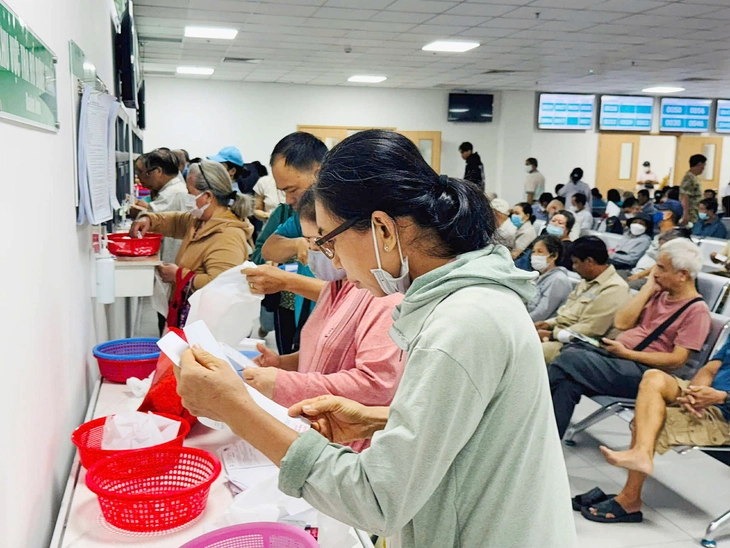
Queuing up to get a prescription for health insurance - Photo: THU HIEN
The Ministry of Health has just issued a circular regulating prescriptions and the prescription of pharmaceuticals and biological products in outpatient treatment at medical examination and treatment facilities. Of which, 252 diseases belonging to 16 groups of diseases are prescribed for outpatient treatment for a maximum of 90 days.
Satisfy people's expectations
Over the past time, many chronic patients have been treated stably, especially the elderly who have been tired of lining up from early morning every month just to get their prescriptions. Among them, many patients have been using the same prescription for months, but because of the regulation on outpatient medication dispensing for a maximum of 30 days, they have to go to the hospital every month to get their medicine.
Mr. Hoang (70 years old, Hanoi ) shared that he has had high blood pressure for many years. "Although the hospital is near my house, every 21 days I have to go at 5:30 am to get checked. It is called a check-up but actually there is not much to check. The doctor asks about my condition, if there are no unusual symptoms, he gives me medicine as usual," said Mr. Hoang.
When he learned that he would be given medicine for more than 30 days for patients with stable chronic diseases, Mr. Hoang could not help but be happy. He said that if he were given medicine for a longer period, he would not have to travel as much, and would not have to interrupt or stop taking his medicine because sometimes "weather changes" prevent him from going to the hospital for a follow-up examination on time.
Ms. Hoa (Hanoi) said that every month she has to take a day off to take her mother to the doctor. Ms. Hoa shared that her mother had previously fallen and injured herself, making it difficult for her to move around. Now she can only use a wheelchair when going out. Therefore, every month she has to take a day off from work to take her mother to the doctor and get medicine for her blood pressure and diabetes.
"Providing long-term medication not only helps patients avoid having to travel and wait, but also helps reduce hospital overload. It also helps relatives like me not to be affected at work," said Ms. Hoa.
Hearing that her diabetes was on the list of chronic diseases that were given medication for more than 30 days, Ms. LTH (77 years old, Ho Chi Minh City) was very excited because her hardships would be relieved. For many years, Ms. H. was diagnosed with diabetes, and every month she had to go to the district hospital to get medication.
Being old and weak, unable to use her own vehicle, every 21 days she has to walk more than 2km to the hospital to get medicine. It is worth mentioning that the medicines she takes are no different from the old medicines she took before; moreover, tests are not done regularly, only once every 3-6 months.
"I asked for more medicine so I wouldn't have to travel so much, but the doctor said it was not allowed. Now hearing the news that the time for medicine delivery has been extended makes me happy, every month I don't have to wait in line and jostle to see a doctor. We are very happy, especially the elderly," Ms. H. confided.
Up to 252 patients are given medicine for up to 90 days.
According to the circular recently issued by the Ministry of Health, effective from July 1, regarding regulations on prescriptions and outpatient prescriptions, 252 chronic diseases will be provided with medication for more than 30 days, instead of the maximum of 30 days as before.
For diseases and groups of diseases that require outpatient prescriptions for more than 30 days, the prescriber will decide the number of days of use of each drug in the prescription based on the clinical condition and stability of the patient to prescribe the drug with the maximum number of days of use of each drug not exceeding 90 days.
This list of 252 diseases not only includes common diseases such as hypertension, diabetes, asthma, COPD, anxiety disorders, depression, etc., but also extends to many other diseases such as chronic hepatitis B, HIV/AIDS, hypothyroidism, pituitary failure, and endocrine disorders.
Or blood and immune diseases such as Thalassemia, hemolytic anemia, amyotrophic lateral sclerosis, Parkinson's, Alzheimer's, dementia... The list also updates some gynecological diseases in adolescents such as menorrhagia during puberty.
Speaking to Tuoi Tre, Mr. Vuong Anh Duong - Deputy Director of the Department of Medical Examination and Treatment Management, Ministry of Health - said that this list was consulted by more than 20 end-line hospitals in specialties such as endocrinology, pediatrics, geriatrics, neurology, psychiatry, etc. and then assessed by professional councils.
Mr. Duong also noted that not all diseases on the list will be automatically prescribed 90 days of medication. The doctor will have to evaluate each specific patient to decide the number of days of medication, which can be 30, 60 or a maximum of 90 days.
Speaking with Tuoi Tre, Dr. Cao Tan Phuoc, director of Thu Duc Regional General Hospital, said that extending the time to dispense medicine to patients is very urgent and timely, especially for chronic patients, to reduce inconvenience for patients.
According to hospital statistics, the number of patients with chronic diseases such as high blood pressure, diabetes, lipid disorders, etc. accounts for about 60 - 70%. This proposal not only reduces inconvenience for patients but also reduces the burden on hospitals.
However, Mr. Phuoc also stated that doctors must consider carefully when prescribing medication for patients for up to 60 days or 90 days, depending on whether the patient's health is stable or not to have a flexible assessment. For the elderly, the disease can easily become severe, so when prescribing medication, it must be based on the patient's health condition.

Patients go to a hospital for health insurance check-up - Photo: NAM TRAN
How many patients benefited?
Speaking to Tuoi Tre, Mr. Nguyen Van Thuong, director of Duc Giang General Hospital, said that the hospital is currently treating and managing about 13,000 people with chronic diseases, of which 60% of patients have been monitored for over 3 years and their health is stable. For patients with high blood pressure, diabetes, hypothyroidism after treatment... if their health is not stable, they need to be monitored and treated until they are stable.
"Treatment and prescription need to be individualized for each patient. Not all patients can be prescribed long-term medication, but some patients can be prescribed long-term medication, even for 3 months. The doctor will base on the patient's medical history, response to the medication... appropriate to their expertise, so that the patient can receive the best treatment," Mr. Thuong shared.
According to Mr. Thuong, if the medicine is provided a maximum of 3 months/time, it will greatly reduce the number of patients coming for daily check-ups.
"Not only will patients benefit, but the hospital will also benefit from this. Doctors will not have to sit at the examination table too much, and will have more time to examine and advise patients more thoroughly. At the same time, hospital operating costs will also be reduced. This will not only reduce hospital overload but also bring many economic benefits," said Mr. Thuong.
Previously, Xanh Pon General Hospital had piloted the provision of long-term medication from November 2024 to the end of April 2025. During this time, the hospital provided over 30 days of medication to about 2,300 patients. The results showed that the rate of patients having to return for examination within 50 days (equivalent to nearly 2 months) after being provided with medication over 30 days was only about 3%.
"This policy has contributed to significantly reducing the frequency of patients coming to the hospital, especially during peak hours such as 8am-10am and 1pm-3pm, thereby improving the convenience of professional work in the examination departments," said a representative of this hospital.
A doctor working in Ho Chi Minh City with decades of experience in dispensing medicine to patients also said that changing the time of dispensing medicine not only helps patients extend the time for follow-up visits, patients do not have to waste time, travel, money... but also reduces the burden on hospitals and the work of doctors and nurses.
When the number of patients decreases, doctors have more time to care for and instruct patients more thoroughly. Chronic diseases are not just about taking medicine, but disease prevention through diet and exercise is also very important. In reality, many patients often complain that due to the large number of patients, doctors have less time to ask and care for patients.
Source: https://tuoitre.vn/tu-1-7-hon-500-benh-man-tinh-duoc-cap-thuoc-den-3-thang-lan-ai-cung-mung-20250701222929532.htm



![[Photo] Brilliant red of the exhibition 95 years of the Party Flag lighting the way before the opening](https://vphoto.vietnam.vn/thumb/1200x675/vietnam/resource/IMAGE/2025/8/27/e19d957d17f649648ca14ce6cc4d8dd4)



![[Photo] Prime Minister Pham Minh Chinh receives CEO of Samsung Electronics](https://vphoto.vietnam.vn/thumb/1200x675/vietnam/resource/IMAGE/2025/8/26/373f5db99f704e6eb1321c787485c3c2)
![[Photo] Prime Minister Pham Minh Chinh chairs meeting of National Steering Committee on International Integration](https://vphoto.vietnam.vn/thumb/1200x675/vietnam/resource/IMAGE/2025/8/26/9d34a506f9fb42ac90a48179fc89abb3)






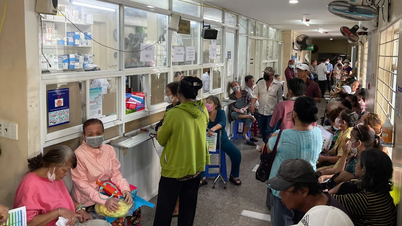











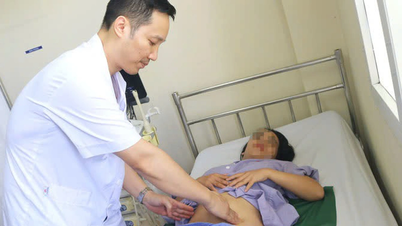






































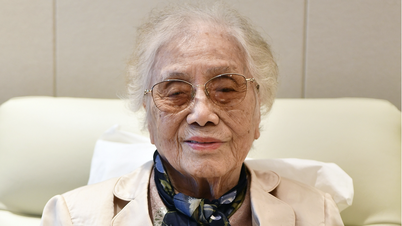













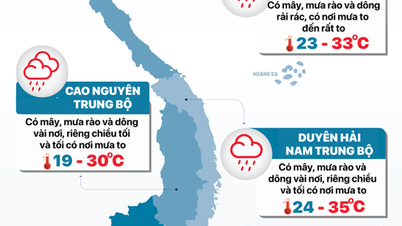




















Comment (0)